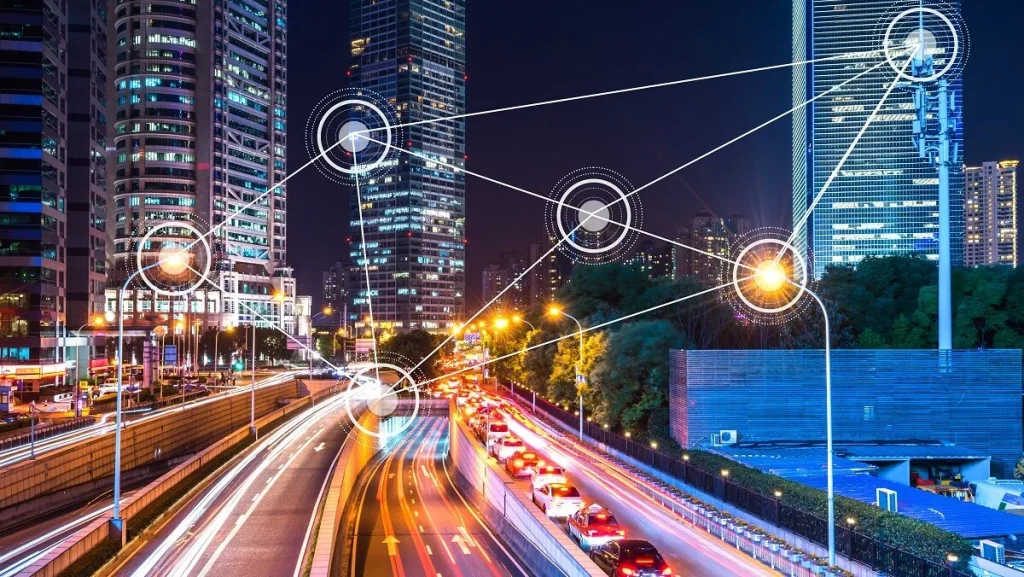Dubai’s skyline is a symbol of architectural ambition. But inside these towers, digital life can struggle. Residents in high-rises often face weak Wi-Fi signals, especially in corners far from the router. This happens because concrete walls, thick glass, and building materials block wireless signals. The higher you go, the more complex signal distribution becomes. If your video calls freeze or Netflix buffers too often, the structure around you might be the real culprit. Fixing this requires smart setups, not just stronger plans.
Fiber-to-the-room solves coverage issues across multiple floors
Fibre-to-the-room (FTTR) is not just a tech trend—it’s a practical game-changer. Instead of relying on one central router, FTTR runs fiber-optic cables into each room. This eliminates signal loss, no matter how far you are from the source. In Dubai, E& UAE is actively promoting this solution in new residential buildings. Users report better speeds and fewer disruptions. If you’re in a large apartment or duplex, FTTR could make every corner stream-ready. That means fewer complaints, smoother gaming, and seamless Zoom meetings.
Metal doors and mirrors often reflect signals back on themselves
Many don’t realize how interiors can disrupt Wi-Fi. Elements like metal doors, floor-to-ceiling mirrors, and even large TVs can reflect and scatter signals. The result? A strong connection one moment, and dead silence the next. To improve stability, place routers away from such surfaces. It’s also helpful to keep the unit elevated—ideally halfway up a wall, not buried behind furniture. In some Dubai apartments, especially in JBR or Marina areas, moving the router three meters can change the whole experience.
Mesh systems spread signal through satellite nodes across the apartment
Mesh Wi-Fi is growing in popularity among Dubai’s tech-savvy residents. Unlike traditional routers, mesh networks use multiple nodes that talk to each other. These nodes are placed across your flat to eliminate blind spots. Du Telecom offers mesh-compatible packages with home installation support. For anyone living in places like Downtown or Business Bay, where layouts stretch across several rooms, mesh is a solid investment. Prices vary, but a reliable set usually starts around AED 600–700. It’s a one-time fix with long-term benefits.
High-rise density means more interference from overlapping signals
Dubai’s buildings are packed with devices—each broadcasting its own signal. That means a single Wi-Fi band could have dozens of users. Your neighbor’s signal can clash with yours, causing lag. To counter this, dual-band or tri-band routers help. These devices distribute load by running on separate frequencies. Most residents in Discovery Gardens or Deira still use outdated routers. Switching to a newer model can cut interference dramatically. Also, choose less crowded channels manually in your router settings.

Using wired access points brings unmatched stability for streaming and gaming
Wireless is convenient, but nothing beats the stability of wired access points. You can connect your gaming console or smart TV via Ethernet to avoid delays. Companies like MAK Network Solutions in Dubai offer structured cabling services. Especially in homes with gamers or remote workers, this is invaluable. Even a single Ethernet port added near your TV can improve your binge-watching nights. Wired zones also reduce strain on the main Wi-Fi signal, helping all other users in the house.
Outdated firmware often causes speed drops and random disconnections
Many residents in Dubai unknowingly use routers with outdated firmware. Old software can reduce speed or create vulnerabilities. Regularly updating your router helps avoid glitches. Most routers allow updates via their admin panel or mobile app. For instance, Netgear and ASUS models provide automatic notifications. If your building has shared internet, always ask management if firmware updates are part of maintenance. According to www.few.ae editor research, this simple act can boost performance by up to 30%.
Service providers offer building-wide solutions for developers and tenants
Dubai-based providers like Nets International work with developers to equip entire towers with advanced connectivity. That means centralized systems delivering fiber to each unit. Projects in Barsha Heights and Jumeirah Lake Towers already benefit from this. If you’re moving into a new tower, ask about pre-installed GPON networks. These reduce costs and hassle. Also, inquire about shared access points on each floor, which can support Wi-Fi in hallways and lobbies. The future of Dubai real estate includes connectivity as a basic utility.
Check your device’s Wi-Fi card—some old models slow everything down
Not every speed issue is your provider’s fault. Your device might be the bottleneck. Laptops with outdated Wi-Fi cards may only support older protocols like 802.11n. That limits speed no matter how strong your router is. Newer devices support Wi-Fi 5 and 6, allowing better speed and load handling. If your apartment in Silicon Oasis suddenly feels laggy, check your gear first. Upgrading your adapter or switching to a newer device might solve more than you think.
Local tech experts in Dubai offer in-home assessments and custom fixes
Sometimes, trial and error won’t cut it. Dubai has numerous Wi-Fi consultancy services that offer in-home assessments. Experts map your apartment, detect interference zones, and design tailored solutions. Services from companies like WiFi Support Dubai or Hafizath IT cost between AED 200–500 per visit. They also help you choose the right hardware, making sure every dirham counts. If you’re renting, they’ll even propose temporary solutions that won’t affect the lease. As www.few.ae editor notes, this hands-on approach is what turns frustration into function.
